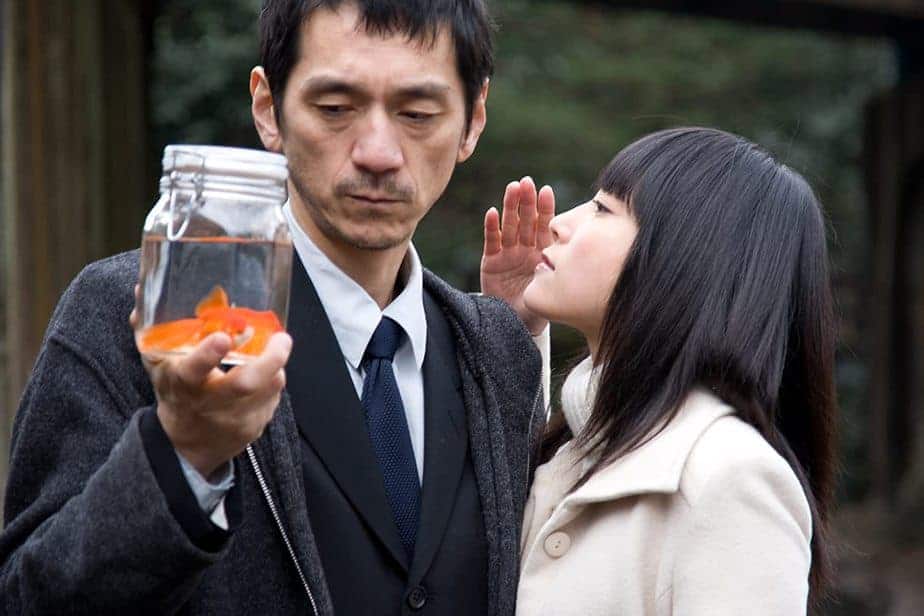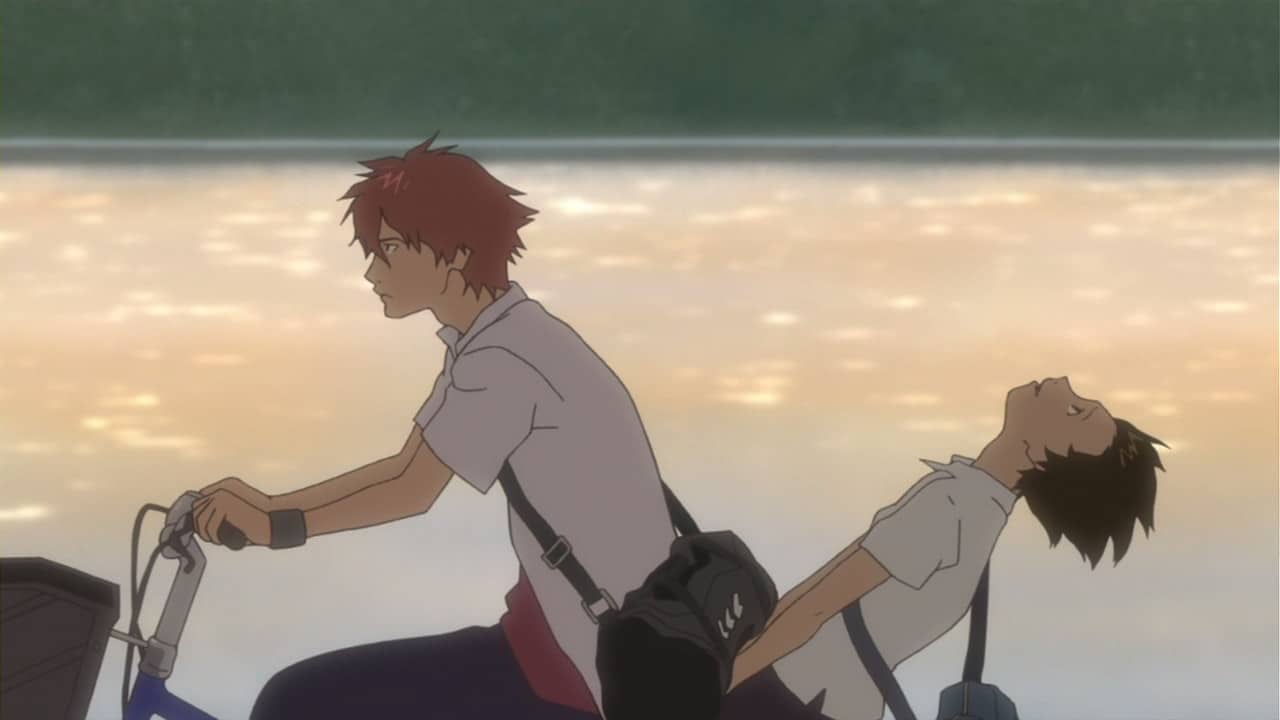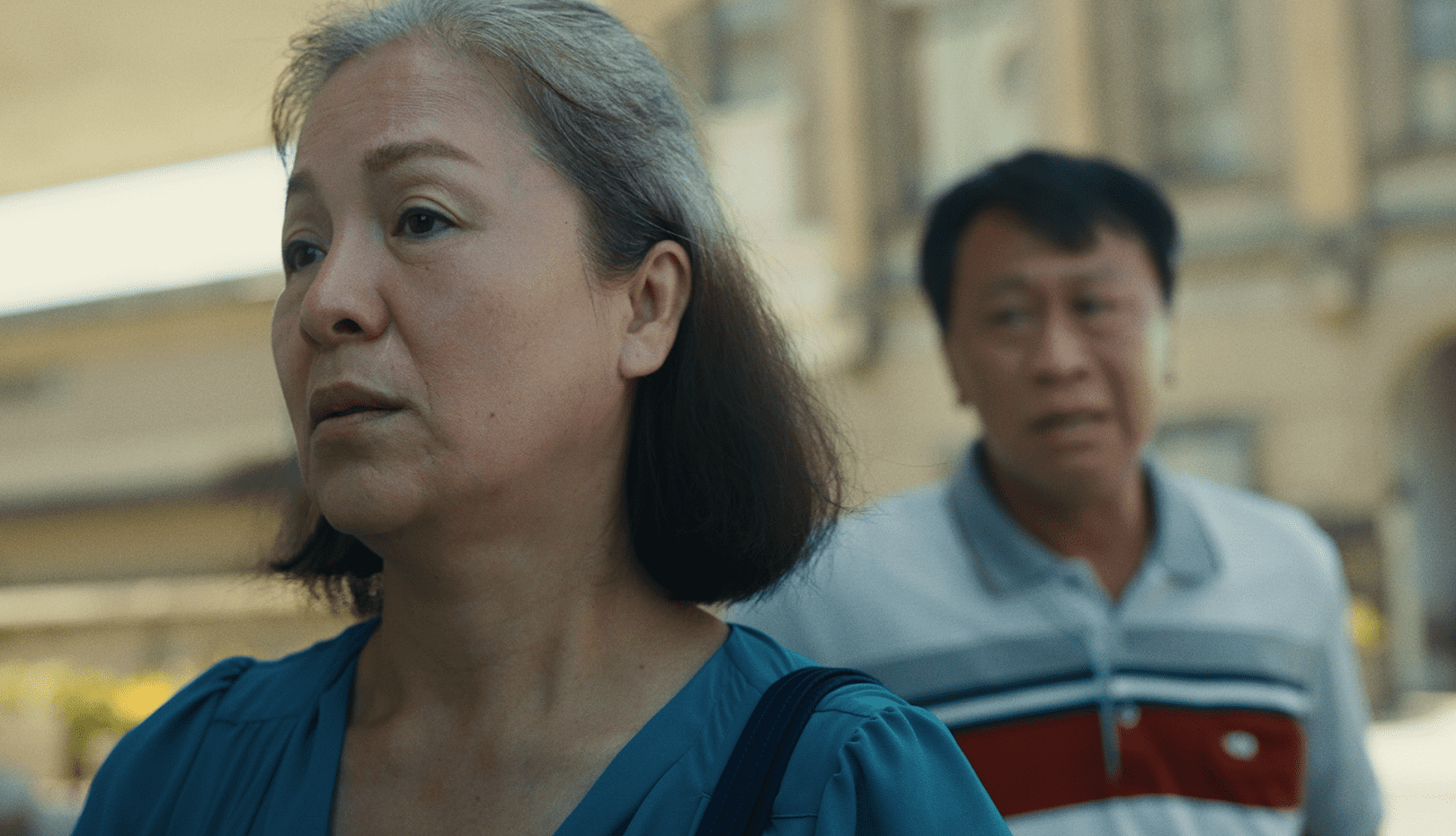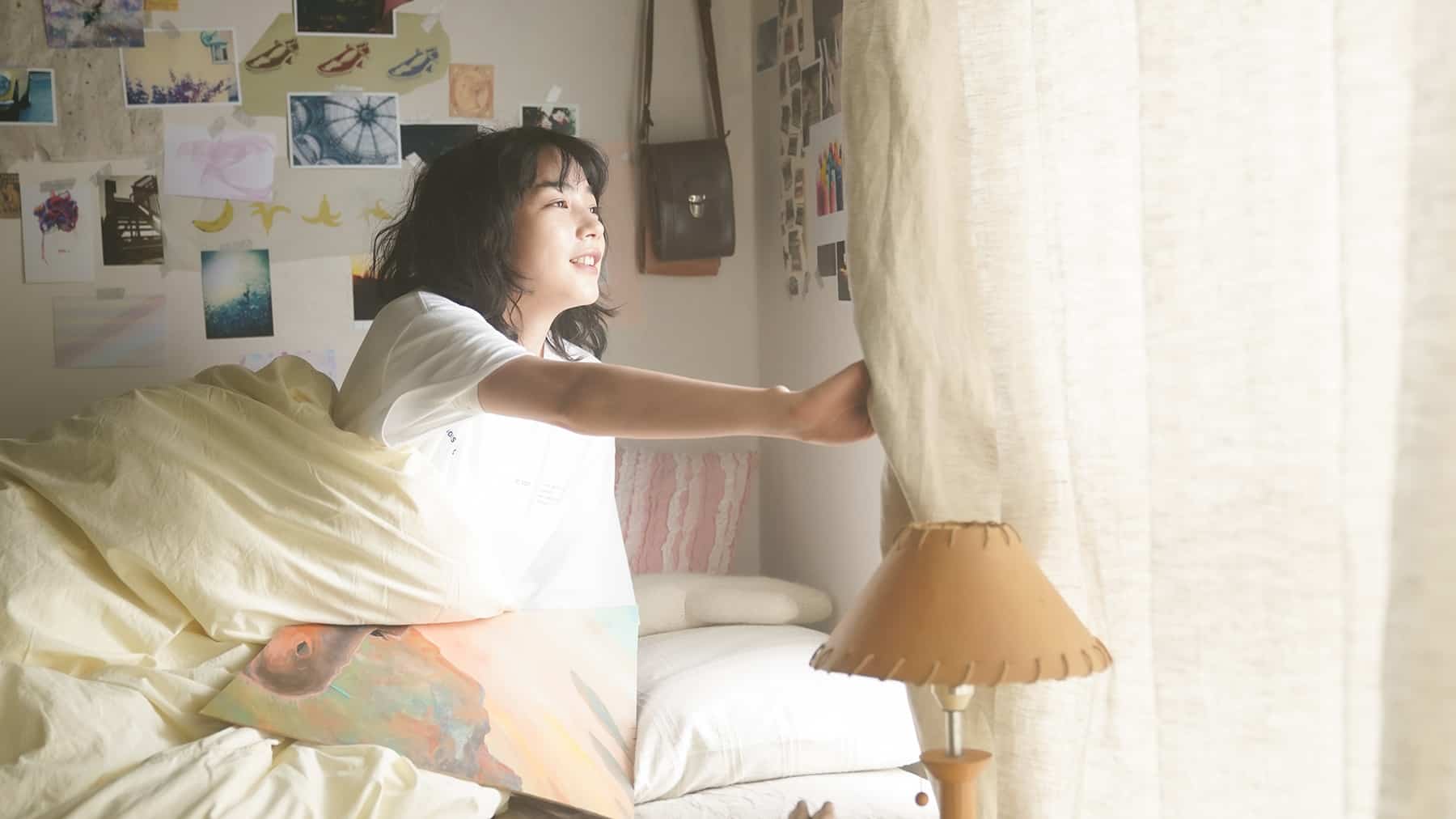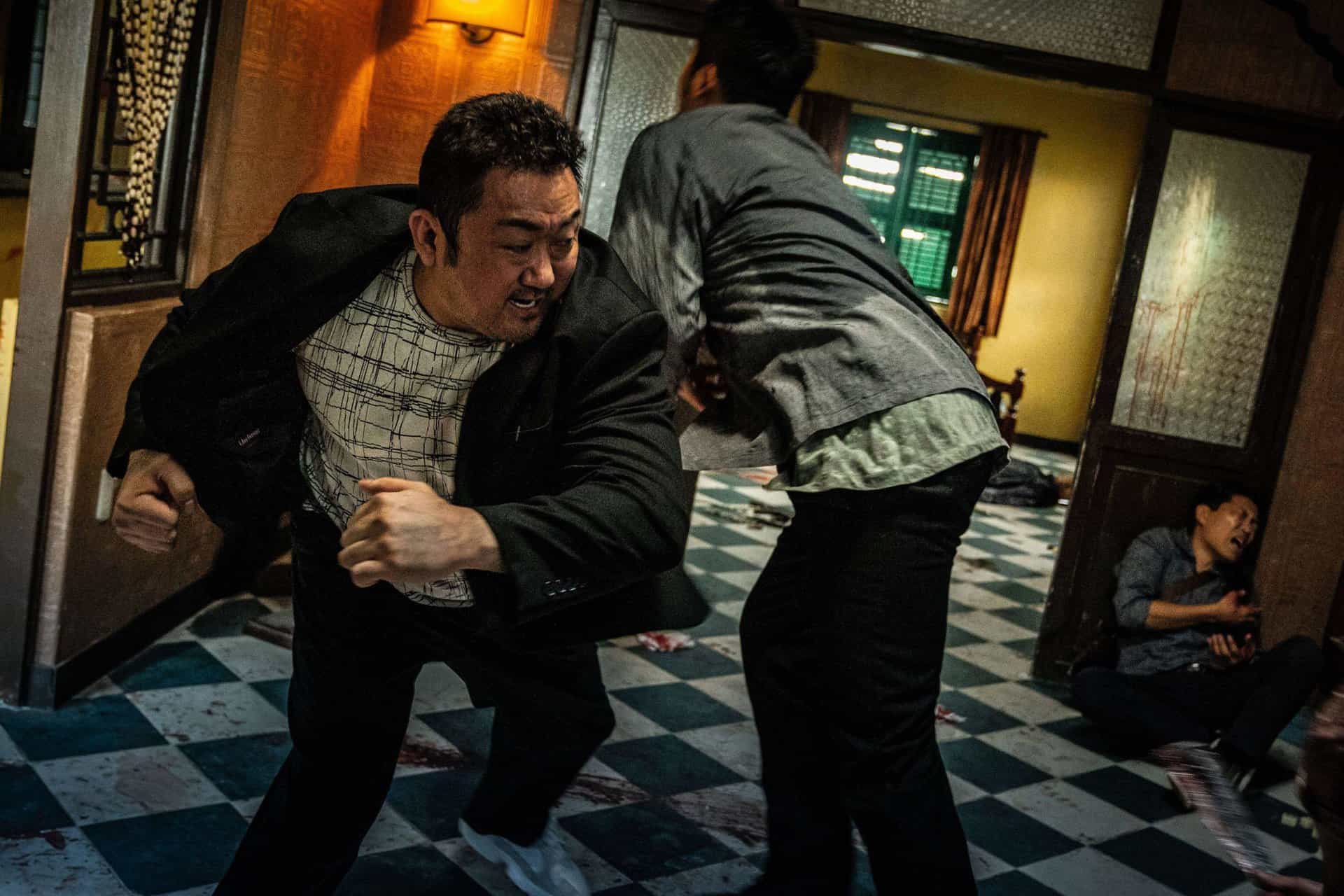By Sayandeep Bandyopadhyay
Kingyo (which means “goldfish” in Japanese) is a short film by the Malaysian filmmaker Edmund Yeo. It is based on Yasunari Kawabata's 1924 short story “Canaries”. His previous efforts, which include short films like “Chicken rice mystery”, “Fleeting images” and “Love suicides” showcased his talent effectively, while in “Kingyo”, his first Japanese language short film, it's clearly visible that he has only taken his talent in the forward direction. The film, which wonderfully depicts love, loss and memories has the ability to have a longing effect on the audiences even after it's finished.
The young female protagonist of this film, played by Luchino Fujisaki, is dressed up in a French maid's costume offering the pedestrian a guided tour of the city of Akihabara for 10,000 ¥.She seems lost in the colourful and crowded citys as her offer is being completely overlooked. But then she encounters a middle aged man, played by Takao Kawaguchi, who happens to be her former university professor, asking for a tour in exchange for paying her. As they begin to walk through the city, they also embark on a journey of their troubled romantic past, perfectly complemented by the soothing neon hues of the city. The pair's contemplation on their past, gradually sheds light on their relationship, which was hindered by the presence of a third character, the man's wife, played by Kyoko Kudo. The thread that is connecting this intense love triangle is a vibrant pair of goldfish that touches the lives of each of the three characters.
The film uses split screen technique, which is arguably its most unique and prominent feature. Another trait is its extensive usage of colour palettes. Yukibumi Josha and Yoshio Kitagawa shot it so beautifully that each frame can easily be considered as a masterful painting, filled with rich colours. Director Edmund Yeo effectively uses the split screen technique to show the characters' loneliness and troubled mental state, asi ti also acts as a barrier between the two characters when they are occupying the same space. He also uses it to show the parallel actions of the man and the maid, which is, in my opinion a very clever step, in order to make this movie even more creatively inclined.
Apart from being the director, Yeo is also the screenwriter and editor of the film. Throughout the movie, we see frequent montages of the city and get accustomed to its vibrant nature. Yeo crafted the story with utmost care, deliberately setting it to a slow, rhythmic pace to match the intensity and mental state of the characters. The characters do not converse much, instead they choose the path of contemplation and confession, trying to revisit their past.
His wonderfully written dialogues help to create a calming influence on the film, which reveals the depressing nature of the characters. For example, when the woman asks the man if he still enjoys his work he says:
“Sometimes you get used to things. After fifteen years it's not a matter of whether you ‘like' it or not. You just forget about the tiny details.”
The term “tiny details” is closely related with the flow of the movie as we see the band members, who the director shows for a brief moment towards the start of the film, appearing again at the end of the movie, which indicates the director's desire to come full circle. The same applies to the time when a certain anime picture of a maid merges with the female protagonist.
The unique narrative process enhances the poetic element of the film, which is already achieved by its beautiful use of split screen and calming atmosphere. Throughout the movie, we see the character's constant reminiscence of their past, reliving the time they shared together. Because of its unique storytelling method, we are able to experience the striking differences between their past and present situation, and of how much they've grown apart from each other in one year.
Takao Kawaguchi, Luchino Fujisaki and Amane Kudo expertly play their part. Kagaguchi is probably the most impressive of them all. He wonderfully portrays the tiredness and the depressing nature of the University professor, whose life is in shambles because of his extramarital affairs and his relationship with his wife. Fujisaki's character gives us the opportunity to experience the struggles of the cosplay maids in Japan. Through her eyes, we experience the bright and colorful nature of Akihabara, which is completely opposite to the nature of the wife and the pale use of color and emptiness in her house, which clearly reflects a sense of loneliness in her heart.
I have rarely seen a short film which touches so many important aspects of our life with so much proficiency. The film stands tall for its poetic elements and skillful portrayal of a fairly complex theme. “Kingyo” was received well by most prestigious of film festivals. This film deserves to be seen by every cinephile out there, because I believe that they will relish every moment of it as I certainly have.


